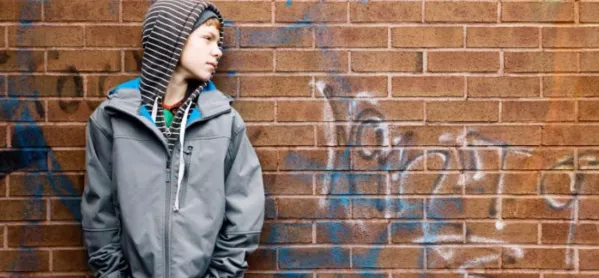For soon-to-be prime minister Tony Blair back in 1996, the priority for the UK was education, education, education; for former prison governor Sue Brookes today, the priority for schools should be parenting, parenting, parenting.
The first year of secondary school should be about building pupils’ life skills and creating a sense of belonging, according to the former governor of Polmont Young Offenders Institution, who has particular concerns about boys’ struggles in school.
“Qualifications are nice, but in day-to-day life they don’t help,” she said. “What helps me are the things I learned from my parents, like the ability to cope with stress, cope with loss and cope in different situations.
“Regardless of whether a child is struggling or they are destined for a bright career pathway, they will need skills like parenting, stress management and coping with loss.”
Schools already touched on these topics through personal and social education, acknowledged Ms Brookes, who has been seconded to Education Scotland for the past two years and was invited to speak to secondary headteachers at the annual School Leaders Scotland (SLS) conference in St Andrews last week. However, the impact was diluted because PSE inputs were “scattered about” when that kind of learning needed a “concentrated platform”, she told Tes Scotland after her speech.
She urged schools to share what they knew about the impact of adverse childhood experiences - stressful events occurring in childhood that affect their health later in life - with pupils.
“We should be teaching young people about these things before they have families themselves,” said Ms Brookes.
She also called for more of a focus on the particular struggles that boys face. There was a lot of emphasis in schools on achieving equality in education for girls - and driving up female participation in science, technology, engineering and maths. This was right and proper, said Ms Brookes, but more attention was needed to be paid to why boys were more likely to be excluded from school, to be violent and to end up in prison or committing suicide.
She suggested that it might be linked to the developmental difficulties they were more likely to experience in their early years, as well as the literacy difficulties they often encountered upon starting school.
According to Scottish government figures, 60 per cent of pupils with additional support needs are male.
“I strongly believe if we really want to have a more equal society for women and girls as well as boys, then we need to pay attention to the development of boys because ultimately they end up more likely to be excluded from school, more likely to exhibit violent behaviour generally - but also to women and girls - and more likely to be the victims of violence themselves, and 8,000 of them are in prison.
“As a society, we should be thinking about that. Many of the things I see [headteachers] doing in response to adverse childhood circumstances will also address the issues for boys, but I still don’t think we really understand sometimes how they respond and what might be slightly different for them.”
Ms Brookes’ comments were echoed by new SLS president Billy Burke, the headteacher at Renfrew High School, who said: “Health and wellbeing comes first. You have to create the conditions where young people feel valued and cared for, and make sure they have positive relationships and support. After that, the learning will follow.”




